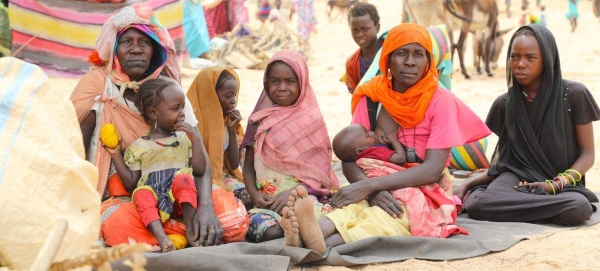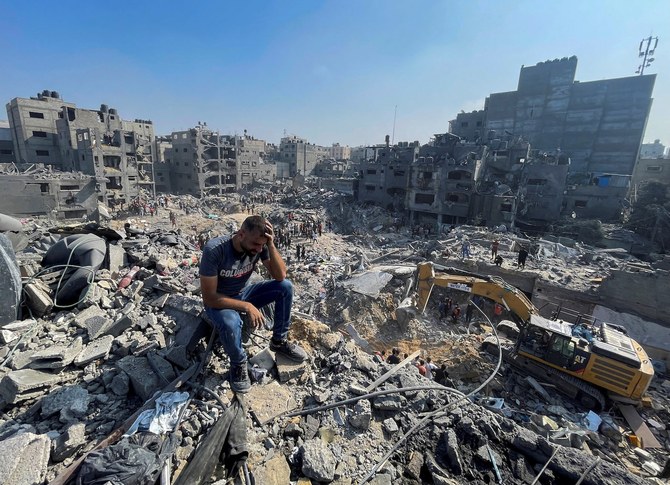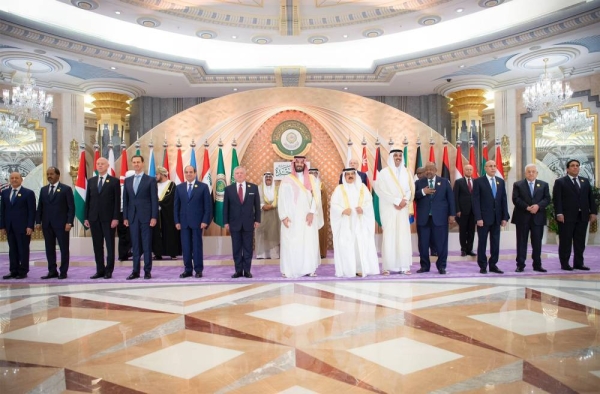
NEW YORK – Syria is being pulled into the catastrophic conflict that is engulfing the region, the Independent International Commission of Inquiry on the Syrian Arabic Republic warned the UN General Assembly in New York today.
The dramatic escalation in the region has displaced over 300,000 Syrian refugees yet again, this time fleeing Israeli bombardments from Lebanon into Syria. Alongside more than 100,000 Lebanese nationals, they are fleeing into a war-torn and devastated country that is itself witnessing increased Israeli airstrikes and which remains hugely insecure and continues to sink deeper into humanitarian and economic crisis.
“That Syrians who have a well-founded fear of persecution in their home country are fleeing back underscores the impossible choices that they are facing: do they risk their lives to bombs in Lebanon, or go back to a place where they may also face other deadly threats?” the Chair, Paulo Sérgio Pinheiro, told Member States on behalf of the Commission.
Many women and children have embarked alone on perilous journeys into Syria, due to well-documented patterns of arbitrary arrest, conscription and forced recruitment of men of military age. Male adult family members have either stayed behind or resorted to alternative but equally risky travel, relying on smugglers.
“The Commission is investigating reports of displaced Syrians being abused, arrested or falling victim to extortion by predatory armed actors at checkpoints throughout the country. We call on all authorities – State and non-State – to urgently rein in such abuses by their forces,” the Chair said. “Now is the time to commit publicly to guaranteeing respect for the rights of those fleeing, regardless of their origin, and to instill confidence in such promises by providing access for international humanitarian and human rights actors who can help ensure that these promises are lived up to.”
Before this current crisis, only 1.7% of refugees expressed an intention to return to Syria in the short term, citing concerns about safety and security inside Syria as key obstacles.
The Commission noted some positive efforts by the Syrian Government to facilitate the entry of those fleeing Lebanon, such as the Government"s temporary suspension of the requirement for Syrian citizens to exchange USD 100 at official rates upon entering Syria, as well as a potential role for the UN Refugee Agency (UNHCR) in accompanying them. At the same time, barriers impeding safe and voluntary return are many.
These include Government security forces continuing to torture and disappear detainees in their custody despite the International Court of Justice’s order last November to take all measures within its power to prevent such violations.
But it is not just Government-held areas that are unsafe. A significant share of Syrian territory is controlled by non-State armed groups where civilians are also at risk of violence and multiple layers of predation by the UN designated terrorist entity Hay’at Tahrir al-Sham, by factions of the Syrian National Army, and by the Syrian Democratic Forces.
Fighting has intensified along multiple frontlines across Syria in recent months. This includes increased Israeli airstrikes (over 50 reported since July alone), mutual attacks between US forces and Iran-backed militias, a reported doubling of attacks by the Islamic State of Iraq and the Levant (ISIL), violence between tribal fighters and Syrian Democratic Forces (SDF) in Deir-ez-Zawr, and shelling between the SDF and the Syrian National Army in northern Aleppo province.
Alarmingly, pro-Government forces in Idlib have increased land and aerial attacks, killing and injuring at least 120 civilians in the past few weeks and displacing hundreds of families.
“Such risks to life, limb and liberty are compounded by continuing unchecked destruction and plundering of refugees’ and IDP’s housing, land and property, and an ever-deepening economic and social rights abyss,” the Commission said, urging Member States to step up humanitarian aid. Only a quarter of the UN’s 2024 humanitarian response plan for Syria is funded, while over 13 million people now desperately need food and other life-saving humanitarian assistance, alongside those now fleeing from Lebanon.
Humanitarian actors also face challenges in ensuring adequate and reliable access to financial services due to unilateral coercive measures, noted the Commission, urging States to conduct an urgent review of sanctions and their impact on the population and humanitarian actors, including as a result of over-compliance.
In closing, the Commission Chair echoed calls by the UN Special Envoy on Syria and the UN Secretary-General for immediate ceasefires in Gaza and Lebanon, given the grave implications for Syria and Syrians of escalating regional conflict.
He warned that “international silence and acquiescence, and the near impunity these have brought, have normalized the disregard for international law and the decisions of international courts that we see from warring parties, both Governments and non-State actors. These legal frameworks were developed because nations acknowledged that all people are entitled to dignity and fundamental rights and that armed conflicts should no longer be waged unchecked. We call on UN Member States to do everything they can to ensure full respect for international law and to cease providing support and assistance to parties perpetrating international crimes.”
Background: The Independent International Commission of Inquiry on the Syrian Arab Republic was established on 22 August 2011 by the Human Rights Council through resolution S-17/1.The mandate of the Commission is to investigate all alleged violations of international human rights law since March 2011 in the Syrian Arab Republic. The Human Rights Council also tasked the Commission with establishing the facts and circumstances that may amount to such violations and of the crimes perpetrated and, where possible, to identify those responsible with a view of ensuring that perpetrators of violations, including those that may constitute crimes against humanity, are held accountable. The Human Rights Council has repeatedly extended the Commission"s mandate since then, most recently until 31 March 2025.
More information on the work of the UN Commission of Inquiry on Syria can be found here.
For media requests, please contact: Johan Eriksson, UN Syria Commission of Inquiry Media Adviser, at +41 76 691 0411 / johan.eriksson@un.org; or Todd Pitman, Media Adviser, Investigative Mandates, at +41 76 691 17 61 / todd.pitman@un.org; Pascal Sim, Human Rights Council Media Officer at +41 22 917 9763 / simp@un.org.












